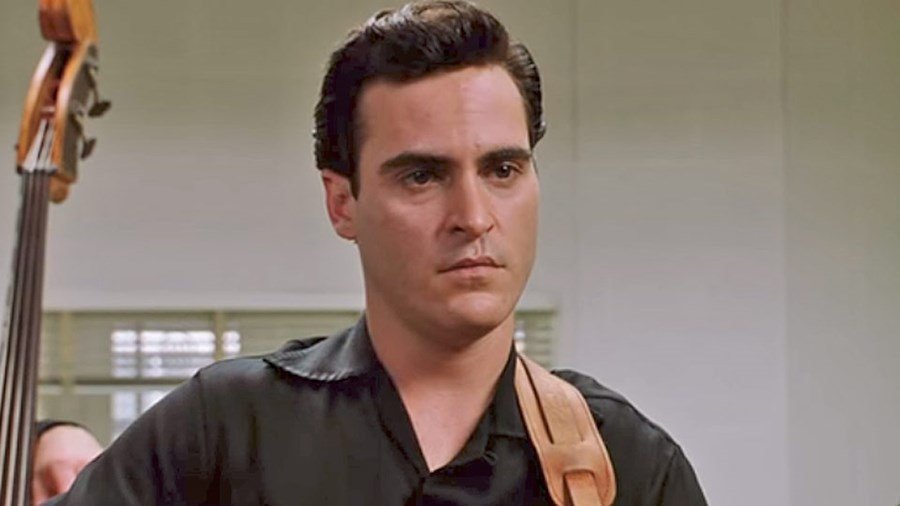Walk the Line, a Complete UNKNOWN
Edit: While posted after the 97th Oscars took place, 3/4ths of this was written before the ceremony and I feel like the analysis and writing is mostly solid in this essay, so I’m leaving the writing as is. Besides, the outcome of the ceremony doesn’t change much, if at all, of what’s written below.
Welcome to 2025! The latest news shaking the movie world has been the Oscar nominations. 13 nominations for Emilia Pérez, which I didn’t even know was a musical until a bunch of my colleagues started singing songs from the movie for which I had no context. I still have not seen the movie, but because of the 13 nominations and the fact that its musical numbers and cinematic virtues seem to be polarizing, I have a stronger desire to experience what this film is about (and really decide for myself whether I like it or not). I am concerned that the director seemed to have little interest in researching the worlds of the film that I think require at least some nuance and authenticity to display onscreen, including gender transitioning and Mexican cartels. You can still research the topic to make sure you’re portraying something with the full level of richness the topic deserves, and it shouldn’t inhibit your goals of making an emotional film.
Conclave has been my favorite film of the year so far. It features rich, complex portrayal of a cardinal convening the papacy to pick the pope’s successor after he dies, thanks to top-notch writing and acting from Ray Fiennes, and hammered home with excellent direction from Edward Berger. I could rave about the movie’s merits in another blog post, but I’m writing today to chronicle my experiences watching another movie from this Oscar season, a musical biopic that I couldn’t help comparing to one made twenty years earlier, and by the same director. That’s right – Walk the Line, starring Joaquin Phoenix and Reese Witherspoon and directed by James Mangold, is now twenty years old, and I thought I’d take the occasion of the film’s 20th anniversary to look back at what made the film so great. While I appreciated A Complete Unknown for helping to further cement Bob Dylan’s legacy as incredibly singular songwriter, I couldn’t help but yearn for the movie to possess Walk the Line’s kinetic energy after a screening of the film. And that may not be entirely fair to either movie, since both possess different musical protagonists and stories, but the fact that Johnny Cash appears in both movies with the same director invites comparisons. I’d rather take the time to talk about what makes Walk the Line great, as I enjoyed the movie that much more. I’d also like to take a brief opportunity to talk about what I was missing from a movie about Bob Dylan, as someone who considers him a personal and artistic influence.
Joaquin Phoenix as Johnny Cash (Walk the Line)
Timothée Chalamet as Bob Dylan (A Complete Unknown)
Walk the Line has a bunch of stuff going for it as a movie and story that I don’t think even Johnny Cash could have quite planned when he asked writer James Keach to make a movie out of his life in the mid-1990’s. What cements this movie in the musical biopic genre is the fact that so many elements sizzle on their own, while working together in a coherent vision that serves the music, story, and Johnny Cash’s legacy. I feel like any fan of rock and roll will connect directly with his songs’ distinctive rhythms and undercurrents of melancholy, which serve to make them compelling and honest. And I was not originally a Johnny Cash fan, but these tunes, as performed by Joaquin Phoenix and Reese Witherspoon with an excellent backing band, connected my gut directly with the origins of this music, a genre that really means something to me.
This is to say nothing of the story, which features Johnny Cash as the underdog, chip-on-his-shoulder fuckup, which makes the character seem exciting and real and magnetic. This is of course due to Joaquin Phoenix’s wonderful performance as well, but I like how this movie tries to be honest about who Johnny Cash was during this tempestuous period of his life, as opposed to approaching the man’s story with the goal of trying to protect his legacy. After watching A Complete Unknown, I was concerned that Mangold and company didn’t do enough to put Bob Dylan under the microscope in the way he possibly deserved. His work deserves a fresh evaluation and appreciation, especially because his songs are still so strikingly relevant in a world that’s changed so dramatically since his heyday. The movie could have facilitated this along with an honest look at the way Dylan treated the people closest to him and resented his audience at the height of his fame. That would have created a compelling character and story, and been a more truthful portrayal of the man, myth, and artist. Instead, I felt like what we got was a tiptoeing around the more destructive aspects of Bob Dylan’s character. Walk the Line didn’t shy away from that and didn’t have to compromise the truth of Johnny Cash’s actions, and the power of his music, character, and story (not to mention his love for June Carter!) were still preserved.

